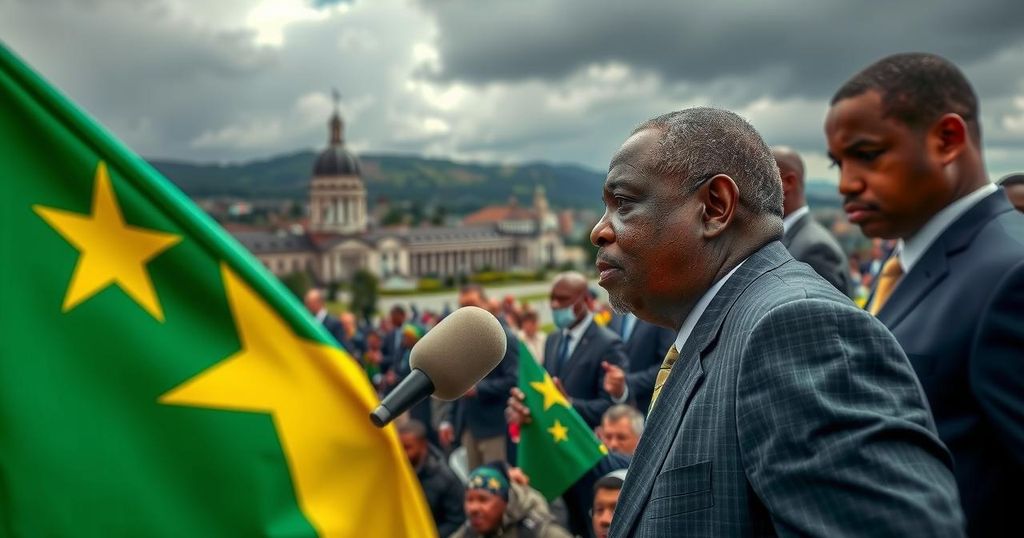Gabon conducted a referendum on a new constitution aimed at reshaping governance following decades of Bongo family rule. With a strong focus on voter participation and official narratives, the proposed changes include term limits for the presidency and stricter eligibility criteria for candidates. Amidst concerns of authoritarianism, voter sentiment appears cautiously optimistic, signaling a pivotal moment in Gabon’s political evolution.
On Saturday, Gabon held a referendum to vote on a new constitution, which the ruling junta claims will signal a significant transition after decades of dynastic governance. Approximately 860,000 registered voters were urged to participate, marked by official promotions on various media platforms encouraging ballots marked green for “yes” and red for “no.” The polling stations were set to operate until 6 p.m., although voting commenced late at several locations in the capital, Libreville, amid reports of official propaganda focusing on the junta’s narrative.
The proposed constitutional changes include limits on presidential terms to a maximum of two seven-year periods, the elimination of a prime ministerial position, and requirements that all candidates be Gabonese citizens with at least one Gabonese-born parent. These measures would exclude previous President Ali Bongo Ondimba and his family from future candidacy. Transitional President Brice Oligui Nguema, who voted on-site, termed the referendum a “great step forward,” reflecting his administration’s commitment to a transparent voting process, despite his own aspirations to retain power during the anticipated 2025 elections.
The extended night curfew, now in effect from midnight to 5 a.m., adds another layer of control during the electoral process. Local observers have expressed concerns that the referendum appears to favor the junta, with accusations that the constitution was designed to preserve their dominance. Voter sentiment seems divided, with some citizens expressing faith in the junta while others worry about impending authoritarianism. According to recent surveys, a substantial majority believe the nation is on the right path, although many cite unemployment and public works as pressing issues. The importance of voter turnout and the integrity of the referendum process must be underscored as provisional results are anticipated following the closing of polls.
This referendum takes place following a military coup in August 2023 that ousted President Ali Bongo, who had been accused of widespread misconduct during his lengthy rule. The junta, now led by Brice Oligui Nguema, is attempting to establish legitimacy through constitutional reform. The proposed changes are perceived as an effort to curtail dynastic succession and enhance governance through electoral accountability, although critics argue that the measures still create a pathway for authoritarianism under the current military leadership. Amid these developments, the populace remains hopeful yet cautious about the future of democratic practices in Gabon.
As Gabon voted on a transformative constitutional proposal, the event symbolizes a crucial moment in its political landscape after years of dynastic rule. While the junta promotes the changes as necessary and progressive, widespread concerns about potential authoritarianism linger among the populace. The outcome of this referendum will not only reflect the public’s confidence in the junta’s intentions but will also set the stage for Gabon’s political future in the coming years.
Original Source: www.arabnews.com






